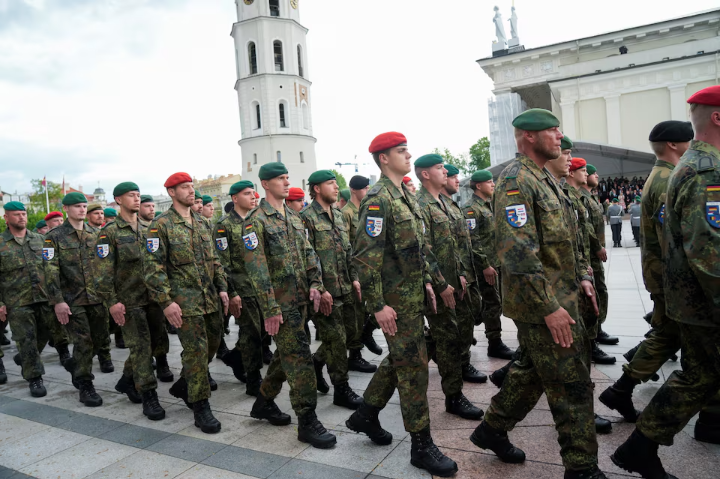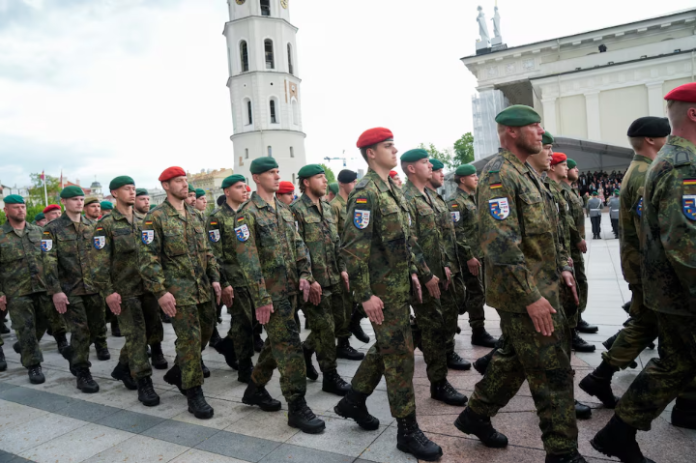Germany is taking a bold step in strengthening NATO’s eastern defenses by deploying a full combat brigade in Lithuania, a move designed to deter potential threats from Russia and reinforce its commitment to allied security.
Speaking at a formal ceremony in Vilnius on May 22, German Chancellor Friedrich Merz declared that Germany and its NATO allies are ready to defend every inch of the alliance’s territory. This statement came during the inauguration of the newly formed 45th Armored Brigade “Lietuva,” based near the Lithuanian capital.
“Anyone who threatens an ally must know that the entire alliance will respond together,” Merz said, addressing an audience of soldiers, officials, and citizens waving both German and Lithuanian flags. “Protecting Vilnius is protecting Berlin.”
The brigade, part of NATO’s broader defense posture against Russia’s aggression, will ultimately include around 4,800 troops and 2,000 military vehicles—dozens of which will be tanks. It will be fully operational by the end of 2027 and headquartered in Rudninkai, close to the Suwalki Gap—a strategically sensitive corridor linking the Baltic states to the rest of NATO.
Currently, around 400 German personnel have already arrived in Lithuania to begin preparations for the base, which will cost over €1 billion. Lithuania has committed to increasing its defense budget to over 5% of its GDP from next year to support this effort.
German Defence Minister Boris Pistorius and Lithuanian President Gitanas Nauseda joined Merz at the event. Nauseda noted that Russia and Belarus had recently conducted military drills near Lithuania’s border, underscoring the urgency of stronger defense cooperation.
This deployment marks a significant escalation in NATO’s presence in Eastern Europe. Since 2017, Germany has led a multinational NATO battlegroup in Lithuania. The new brigade represents a much larger and more permanent force, part of Berlin’s broader ambition to turn the Bundeswehr into Europe’s strongest conventional military.

Chancellor Merz acknowledged that Russia’s ongoing war in Ukraine, as well as its hybrid attacks—such as espionage, sabotage, and cyber warfare—pose a direct threat to European peace and stability. He emphasized that Germany is stepping up, not just for its own defense but for the security of the continent.
“Our goal is to provide all necessary resources to modernize the Bundeswehr,” he said. This includes a historic boost in military spending, with Germany already increasing its defense budget to 2.12% of GDP—nearly double what it was in 2014.
The move also aligns with U.S. demands, particularly from former President Donald Trump, that NATO members spend more on their own defense. Berlin appears to be answering that call, with Foreign Minister Johann Wadephul backing a push to raise NATO spending targets to 5% of GDP.
With tensions high in Eastern Europe, Germany’s new brigade is not just a military asset—it’s a message. NATO is ready, united, and serious about defending its allies.



